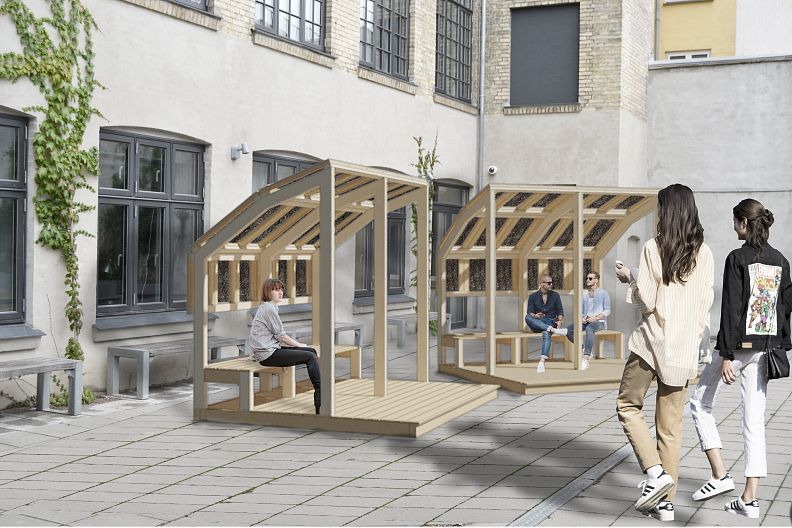The Seaweed Pavilion

Project idea
Vernacular construction methods are often unexplored sustainable solutions, with local materials and builders. The Seaweed Pavilion studies a return to ethical, community building, and the impact it can have on the individuals participating. It tests an innovative update to traditional Danish seaweed thatching, in the form of prefabricated panels. In August 2019, we successfully proposed our concept to KEA Campus Service and received permission to build on site.
Project description
Eelgrass was once used as an insulation material and as roofing on the island of Læsø, in Denmark. The material is rot resistant, fire resistant, is non-toxic, and can support local plant life, yet there is a lot of prejudice against seaweed as a building material. By creating a public pavilion and inviting people to take a seat under the seaweed, we can begin to change perception on this eco-friendly material.
The seaweed panels have applications beyond the pavilion, and could help improve thermal regulation for building renovations on facades and roofs.
Technical information
The pavilion is based on a modular concept. Different modules can be built and arranged on site as desired. This allows for some flexibility on funding and location.
The pavilion is designed for disassembly, so that it can be taken apart and moved or disassembled and all materials recycled. The structure is composed of Danish timber.
The eelgrass from the project was sourced ethically from the local, traditional seaweed Danish farmers, Møn Tang. The eelgrass is laid on a field to be rained upon, and dried before being pressed into bales. Once this process is completed, the eelgrass is completely rot resistant and has the scent of dried grass.
The eelgrass was thatched into prefabricated wooden panel structures, to create thatch panels. These were then installed onto the base pavilion structure.
All that participated in the project received fair compensation for their labor according to Danish labor standards.
Co-authors
Build Team: Gabriel Pantoja, Andrejs Mocalovs, James Birkenshaw
Photographer: Kel Hudson
Funding: Boligfonden Spirekasse



















